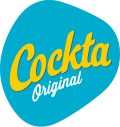Cockta
A non-alcoholic beverage originating from Slovenia
Cockta is a non-alcoholic carbonated beverage that originated in Slovenia. It is known for its unique blend of herbal extracts and fruit flavors, which distinguish it from other soft drinks. Cockta was first introduced in the 1950s and has since become a popular drink in the Balkans and other parts of Europe.
History[edit]
Cockta was developed in 1952 by the Slovenian company Slovenijavino, which sought to create a domestic alternative to Coca-Cola and other Western soft drinks. The original recipe was crafted by Emerik Zelinka, a chemist who combined various herbal extracts with fruit syrups to create a distinctive flavor profile. The drink was officially launched in 1953 and quickly gained popularity due to its unique taste and the novelty of being a homegrown product.
Ingredients[edit]
The original Cockta recipe includes a blend of herbal extracts, rose hip syrup, and caramel for coloring. Unlike many other soft drinks, Cockta does not contain caffeine or phosphoric acid, which makes it a suitable choice for those seeking a caffeine-free beverage. The exact recipe is a closely guarded secret, but it is known to include a variety of natural ingredients that contribute to its complex flavor.
Flavor Profile[edit]
Cockta is characterized by its rich, herbal aroma and a taste that combines sweet and slightly bitter notes. The presence of rose hip gives it a fruity undertone, while the herbal extracts provide a refreshing and slightly medicinal flavor. This unique combination has made Cockta a favorite among those who enjoy beverages with a more complex taste.
Cultural Significance[edit]
In Slovenia and the surrounding regions, Cockta is more than just a beverage; it is a cultural icon. It represents a period of innovation and self-sufficiency during the Yugoslav era, when local products were encouraged as alternatives to Western imports. Cockta's branding and marketing have often emphasized its Slovenian roots and its status as a "drink of the people."
Modern Variations[edit]
Over the years, Cockta has expanded its product line to include several variations, such as Cockta Light, which is a low-calorie version, and Cockta Black Tonic, which incorporates additional herbal ingredients for a more intense flavor. These variations cater to changing consumer preferences and dietary trends.
Production and Distribution[edit]
Today, Cockta is produced by the Atlantic Grupa, a multinational company that acquired the brand in the early 2000s. The beverage is distributed throughout the Balkans and is also available in select international markets. Cockta's production facilities adhere to strict quality standards to ensure the consistency and authenticity of the product.
Related pages[edit]
-
Cockta
Ad. Transform your life with W8MD's Budget GLP-1 injections from $49.99


W8MD offers a medical weight loss program to lose weight in Philadelphia. Our physician-supervised medical weight loss provides:
- Weight loss injections in NYC (generic and brand names):
- Zepbound / Mounjaro, Wegovy / Ozempic, Saxenda
- Most insurances accepted or discounted self-pay rates. We will obtain insurance prior authorizations if needed.
- Generic GLP1 weight loss injections from $49.99 for the starting dose of Semaglutide and $65.00 for Tirzepatide.
- Also offer prescription weight loss medications including Phentermine, Qsymia, Diethylpropion, Contrave etc.
NYC weight loss doctor appointmentsNYC weight loss doctor appointments
Start your NYC weight loss journey today at our NYC medical weight loss and Philadelphia medical weight loss clinics.
- Call 718-946-5500 to lose weight in NYC or for medical weight loss in Philadelphia 215-676-2334.
- Tags:NYC medical weight loss, Philadelphia lose weight Zepbound NYC, Budget GLP1 weight loss injections, Wegovy Philadelphia, Wegovy NYC, Philadelphia medical weight loss, Brookly weight loss and Wegovy NYC
|
WikiMD's Wellness Encyclopedia |
| Let Food Be Thy Medicine Medicine Thy Food - Hippocrates |
Medical Disclaimer: WikiMD is not a substitute for professional medical advice. The information on WikiMD is provided as an information resource only, may be incorrect, outdated or misleading, and is not to be used or relied on for any diagnostic or treatment purposes. Please consult your health care provider before making any healthcare decisions or for guidance about a specific medical condition. WikiMD expressly disclaims responsibility, and shall have no liability, for any damages, loss, injury, or liability whatsoever suffered as a result of your reliance on the information contained in this site. By visiting this site you agree to the foregoing terms and conditions, which may from time to time be changed or supplemented by WikiMD. If you do not agree to the foregoing terms and conditions, you should not enter or use this site. See full disclaimer.
Credits:Most images are courtesy of Wikimedia commons, and templates, categories Wikipedia, licensed under CC BY SA or similar.
Translate this page: - East Asian
中文,
日本,
한국어,
South Asian
हिन्दी,
தமிழ்,
తెలుగు,
Urdu,
ಕನ್ನಡ,
Southeast Asian
Indonesian,
Vietnamese,
Thai,
မြန်မာဘာသာ,
বাংলা
European
español,
Deutsch,
français,
Greek,
português do Brasil,
polski,
română,
русский,
Nederlands,
norsk,
svenska,
suomi,
Italian
Middle Eastern & African
عربى,
Turkish,
Persian,
Hebrew,
Afrikaans,
isiZulu,
Kiswahili,
Other
Bulgarian,
Hungarian,
Czech,
Swedish,
മലയാളം,
मराठी,
ਪੰਜਾਬੀ,
ગુજરાતી,
Portuguese,
Ukrainian
